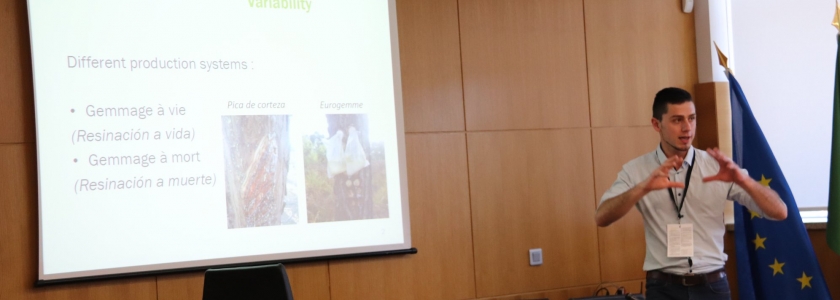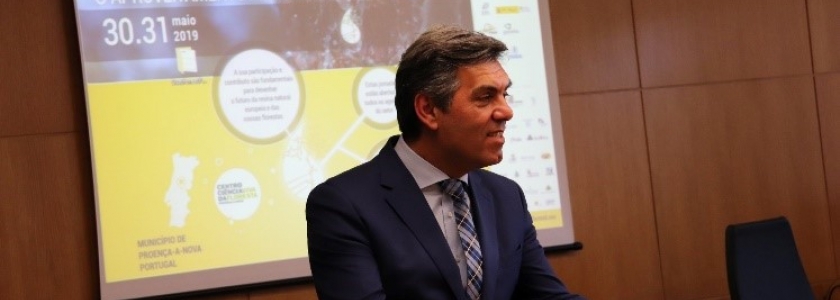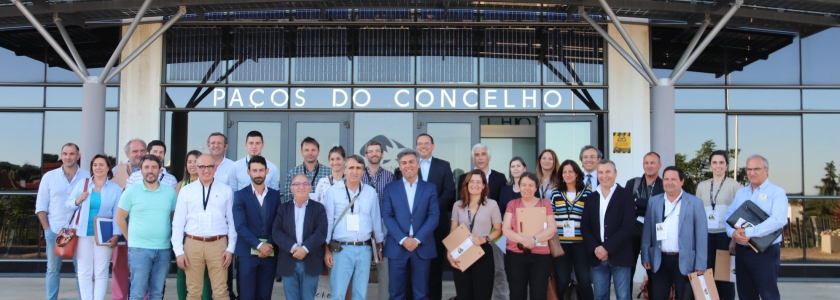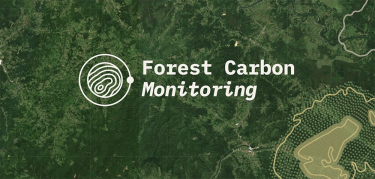Towards the creation of a European Network of Resin Territories
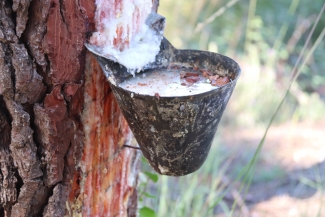
Within the framework of the SustForest+ project –which aims to promote the production of pine resin obtained by tapping in Europe- many actors in the resin sector from Portugal, Spain and France were brought together during the international days "El aprovechamiento resinero : Montes con futuro" organized by the municipality of Proença-a-Nova in Portugal on the 30-31 May 2019.These days were financed by the Interreg Sudoe Programme, through FEDER and European Union funds.
Participation of the EFI in the choice of tapping itineraries with a multi-criteria evaluation method allowing the involvement of stakeholders
EFI participated at the opening day of the seminar on the 29th of may 2019 for the realization of a multi-criteria evaluation workshop of tapping scenarios. This workshop was an opportunity to discuss the main tapping techniques and silvicultures dedicated or not to resin production in the three European countries. The interactions between participants made it possible to clarify the main expectations regarding tapping, depending on the production contexts that differ significantly from one country to another. The proposed multi-criteria evaluation method makes it possible to highlight certain tapping systems according to relevant indicators and above all the importance that the members of the sector attach to them. In France but also in Galicia, economic issues take a more important place than in the other countries considered. Tapping, which had almost disappeared in the Landes forest, must not be achieved at the expense of the profits generated by the sale of wood. However, the tapping technique developed in France is very efficient and has the advantage of producing a high-quality resin and some of the proposed itineraries have attracted the attention of regional operators.
In Spain, resin tapping still has a cultural importance, rooted in a tradition. In this way, social factors are of great importance and the remuneration and working conditions of the resin tappers are the main parameters to be considered to preserve or even to create jobs in rural areas. In Portugal, environmental aspects dominate due to forest fires increasing in intensity and frequency. Tapping trees is a possible passive measure for fire prevention through surveillance.
On the same day, an agreement was signed between the ICNF (Instituto da Conservação da Natureza e das Florestas) and Resipinus (Associação de Destiladores e Exploradores de Resina) to enable about 100 tappers to combine their work with forest fire monitoring. The protocol was signed by Teresa Fidelis, regional director of the ICNF center and Hilário Costa, president of Resipinus association at the town hall of Proença-a-Nova. The Secretary of State for Forestry and Rural Development, Miguel João de Freitas, made a speech on resin tapping and its positive externalities, supporting this symbolic measure for the protection of Portuguese forests against fire.
Establishment of the European network of resin producing territories
The main objective of the seminar was to create a European network of resin territories. Workshops were held on the 30th of May 2019 to define the functions and modalities of this network. It will mainly have to promote the European pine resin obtained by tapping, putting in contact all the members of the sector and the representation before the European Union.
These international days were concluded the following day with visits in the forest in Ourém. The participants were able to discover different places in the Zona de Intervenção Florestal (ZIF) of Seiça-Ourém: a pine forest in natural regeneration after a recent fire and two pine forests of different ages used for resin production. The crossing of tens of thousands of hectares of fire-affected land has once again highlighted the importance of implementing resinous forest management to protect forests from fire.
Armand CLOPEAU
Photo credits : Município de Proença-a-Nova
